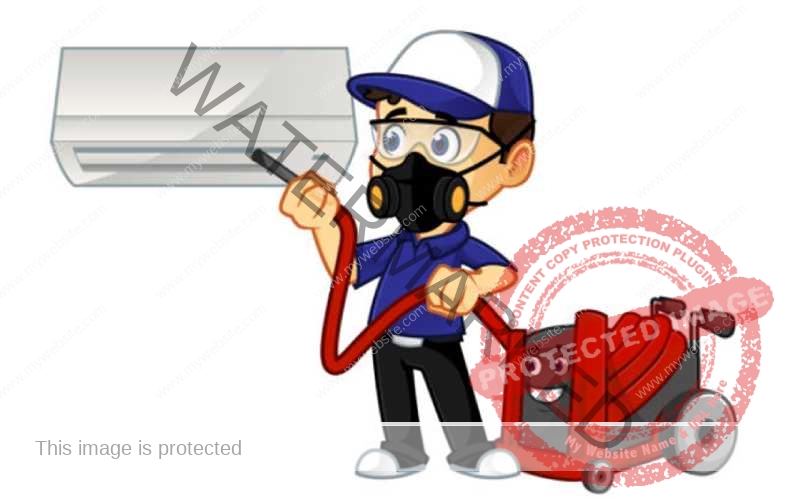
Air Conditioner Diy Servicing
With the ever hot weather, keeping our homes cool and comfortable becomes a top priority. One essential appliance that helps us beat the heat is the air conditioner.
Regular air conditioning servicing and maintenance of your air conditioning unit is crucial for its optimal performance, durability and longevity. While some home owners prefer to hire professionals for this task, others opt for a hands-on approach with do-it-yourself (DIY) air conditioner servicing. In this article, we will explore the pros and cons of DIY air conditioner servicing and provide you with essential tips to ensure you get it right.
What items to clean and wash for DIY Air Conditioner Servicing
Cleaning and washing the various components of your air conditioning unit is an important aspect of servicing. Here are the key items you should focus on:
a) Air Filters: The air filters in your air conditioner are responsible for trapping dust, dirt, and other airborne particles. These air filters should be cleaned or replaced regularly to maintain the unit's efficiency. Remove the filters and either rinse them with water or use a vacuum cleaner to remove accumulated debris.
b) Evaporator and Condenser Coils: The evaporator and condenser coils tend to accumulate dirt and debris over time, reducing their efficiency. Gently clean these coils using a soft brush or a coil cleaner solution to remove dirt buildup.
c) Drainage System: The drainage system of your air conditioner can get clogged with dirt and algae, leading to water leakage. Clean the drainage pan and use a pipe cleaner or a small brush to clear any blockages in the drainpipe.
d) Fan Blades: Dust and dirt can accumulate on the fan blades, affecting their performance. Carefully clean the fan blades with a soft cloth or brush to ensure smooth operation.
Tools and materials needed
Before embarking on your DIY air conditioner servicing, gather the following tools and materials:
a) Screwdriver Set: You may need a screwdriver to remove the air conditioner's casing and access internal components.
b) Soft Brush: A soft brush will come in handy for cleaning delicate parts like the coils and fan blades.
c) Vacuum Cleaner: A vacuum cleaner (wet & dry features) with a brush attachment can be used to remove dust and debris from filters and other components.
d) Coil Cleaner Solution: Purchase a coil cleaner solution specifically designed for air conditioning systems. Follow the manufacturer's instructions for safe and effective use.
e) Water and Mild Detergent: Water and a mild detergent can be used to clean air filters and other washable parts.
DIY aircon servicing or getting the Aircon experts in
While DIY Air conditioner servicing offers several benefits, such as cost savings and convenience, it's important to consider the following factors before deciding:
a) Technical Expertise: Air conditioning systems are complex, and improper servicing can lead to damage or even void your warranty. If you are not confident in your technical abilities, it is advisable to seek professional help.
b) Safety Concerns: Working with electrical components can be dangerous if you don't have the necessary expertise. If you are unfamiliar with electrical systems, it is best to leave the task to professionals.
c) Time and Effort: DIY air conditioner servicing requires time and effort. If you have a busy schedule or lack the necessary time to devote to the task, hiring professionals might be a more practical option.
d) System Complexity: Older air conditioning units may have more intricate components that require specialised knowledge. If you have an older system or one with advanced features, it may be wise to consult aircon experts to ensure a thorough and accurate servicing.
DIY air conditioner servicing can be a viable option for homeowners who possess the necessary skills and knowledge. It allows you to maintain your air conditioner's efficiency while saving money. However, if you are uncertain about your abilities or lack the time and expertise, it is recommended to hire aircon experts. Professionals have the training and experience to handle complex servicing tasks, ensuring the safety and optimal performance of your air conditioning unit.
When choosing professional air conditioner servicing, consider the following factors:
a) Reputation and Reviews: Look for reputable aircon service providers with many years of aircon experiences and positive customer reviews. Check online platforms, ask for recommendations from friends or neighbours and inquire about the aircon expertise and professionalism of the company.
b) Certification and Experience: Verify that the technicians are certified and have sufficient experience in aircon servicing. Well-trained professionals are more likely to deliver quality service and address any issues effectively.
c) Comprehensive Servicing: Ensure that the aircon professional service includes a thorough cleaning of all relevant components, such as air filters, coils, drainage systems and roller. Additionally, they should conduct a system check to identify any potential aircon problems and offer appropriate solutions.
d) Maintenance Contracts: Some air conditioning service providers offer aircon maintenance contracts, which provide regular servicing and discounts on repairs. Consider these contracts if you prefer a hassle-free approach to aircon maintenance.
e) Cost Comparison: Request quotes from different aircon service providers and compare the cost against the quality of service offered. Keep in mind that the cheapest option may not always be the best, as subpar servicing can lead to additional expenses in the long run.
DIY air conditioner servicing can be a rewarding option for homeowners who possess the necessary skills and time. However, if you lack the expertise or face time constraints, it is advisable to hire professional aircon experts. They have the knowledge and experience to perform comprehensive aircon servicing, ensuring the optimal performance and longevity of your air conditioning unit.
Ultimately, the choice between DIY and professional aircon servicing depends on your comfort level, availability, and the complexity of your air conditioner system.
